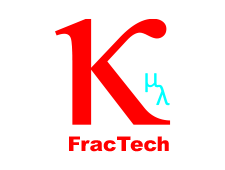CORE SPECIALIST SERVICES: Diversification Builds Core Competency at CSS
Core Specialist Services CEO, Craig Lindsay is busy diversifying the company’s service portfolio as he looks to target new industry sectors with a tech-based approach. By taking everything learned in oil and gas, this is an expert business with much to offer the wider energy sector.
It is no secret that the oil and gas business has become more challenging over the past decade as reserves become harder to reach and more difficult to extract. Energy return on energy invested (EROI) is now a vital part of strategic planning when it comes to developing oil and gas assets, and overall ROI remains the primary driver of economic activity in this sector. Fewer discoveries are being made, more time is being spent bringing discoveries to production, and unconventional assets continue to provide attractive returns. But hydrocarbons still deliver the best EROI and significant overall ROI, and this is why the global energy transition must be a managed process.
IOCs and other operators looking at new exploratory activity now need more information and more visually appealing ways of digesting that information to ensure maximum economic benefit for shareholders as well as the end user. Thankfully, companies like Aberdeen’s Core Specialist Services are putting years of expertise to use, while adding new ideas into its offering, to bring reliable and valuable information to decision makers.
Providing the most accurate insight into the porosity and permeability – as well as other attributes – core analysis is done by taking a sample of the rock being drilled, cutting into multiple core plugs and studying the geology. Expensive and complex, coring is a process that requires significant expertise. This has been the primary offering from Core Specialist Services since formation in 2010.
Core Specialist Services (CSS) CEO, Craig Lindsay tells Energy Focus that this important function remains significant and the process continues to be improved through the introduction of new technologies.
BREAD AND BUTTER
“Core is acquired at great cost but, if exploited fully and appropriately, it can deliver great value. We aim to maximise that value and unlock the information that is required for effective formation evaluation, reservoir description and field development,” he begins.
“The design and management of projects is our bread and butter. Our customers are the operating companies and the laboratory studies are still performed by labs that are directly contracted by those operating companies.”
The growing service portfolio of CSS is significant and offers a turnkey product around coring. From planning, management and integration of core analysis to presentation of data, CSS covers traditional and unconventional reservoirs as well as all related elements.
Typically, a small amount of rock is cut from the within a well using a core bit within the barrel. The core catcher drills out the sample before bringing it back to the surface for analysis. Often, a diamond cutting device is used to cut this extremely tough rock. The data gleaned through this process offers up insight into depth or certain formations, as well as estimations on oil and gas volumes.
Lindsay knows what to look out for after a long career in the sector, including multiple focus points.
“I have been in the energy business for 40 years and I spent the first 20 years working in laboratories – I am a geologist by background,” he says. “I have always worked in the subsurface rock core sector which are cut to study and gather information that can predict the value of a field and reservoir and determine long-term economic value.
“After leaving the laboratory sector in 2000, I joined a consultancy where I worked for eight years. I was on the other side of the equation and I went into project management around laboratory studies on behalf of operating companies, working as a middle man between big energy companies and the laboratories. I set up Core Specialist Services in 2010 as a project management company, all core-related but covering a large range of services in the oil and gas business.”
ACTIVE DIVERSIFICATION
Lindsay could see the value in bringing multiple services through one offering, making for a more streamlined procurement process for clients, while ensuring quality across the value chain. His idea was a success and the company has grown to employ more than 20 people (with more contractors based on workflow) with a wide range of expertise. The company has worked across different continents and different market places, and is capable of delivering innovation in challenging conditions.
“Annual revenue was at a highpoint around five or six years ago before declining for obvious reasons,” remembers Lindsay. “We’re back up again now and it has plateaued. We were happy to stay in business while a lot of others went under through the pandemic. We generate a lot of business for other companies that wouldn’t necessarily get business from outside of the UK,” he says, adding that for each pound the company generates, it brings much more to the value chain as work filters through the network.
“Looking at the bigger picture, that is how we contribute during tough times,” he states. “I am active in looking at other elements that we can bring to the business in terms of diversification and new services so that we are not standing still. Some opportunities pay off and some don’t, but it is all about giving people unique options and more of a reason to come to us.”
The company secured a two-year contract in Southern Africa, on a traditional coring operation, where a client was searching for elimination of faulty data, and CSS delivered – even during the oil price downturn. This success is thanks to an approach based around continuous improvement and adoption of new technology.
“Over the last 10 years, we have taken a strong interest in new technologies and how these can be applied to cores. You can gather a lot more information from these technologies compared to what has been done traditionally. I have been advocating those technologies and trying to collaborate with companies that can develop those technologies,” says Lindsay.
TECHNOLOGICAL FUTURE
By embracing new ideas and new systems, the company is opening up new avenues for growth, and Lindsay is one for making the most of opportunities.
“We are diversifying away from dependency on oil and gas because of these technologies. Cores are now required in a lot of different industries and we are moving into CCS, geothermal, radioactive waste management, and mining. With the energy transition and demand for metals, it is arguably going to be a business that brings opportunities for the foreseeable future.”
The transition sees most developed nations aiming for net zero by 2050 at the latest, shifting away from reliance on fossil fuels and incorporating more renewable and low carbon energy into the mix. Interestingly, much technology and expertise utilised in the oil and gas industry can be easily transferred to modern energy applications, as long as companies follow the CSS example and embrace change.
“Right now, we are pushing hard with Carbon Capture and Storage (CCS) because the UK has just launched its first round of licensing for CCS projects. We have one client engaged in the early stages of a project. They have applied for the license and will get the go ahead likely next year. Then, we have another client building a proposal for a CCS project.”
Of course, building models and creating products and services for new industries is not simple. Lindsay recognises the challenge and has surrounded CSS with specialists – industry veterans with unrivalled knowledge.
“I’m on a committee as part of the Society for Petroleum Engineers which is tasked with the roadmap of core analysis. This opens up fantastic opportunities for us as a business.
“We have put together a team around CCS with 80 years’ experience and these people are experts in everything in that industry, so a client has so much available to them. This is our USP against others. We are all about building teams that can provide everything possible.
CCS is our focus as it is very relevant right now in the UK. We are also going to be doing the same thing for geothermal and radioactive waste management where we have projects in the pipeline. These projects are not at a stage where they can support our entire business but it is moving in that direction,” Lindsay says of a changing industry.
As the energy transition gathers pace, CSS wants to ensure it casts a wide net, offering clients everything they could need when it comes to core analysis as well as services in alternate industry sectors. As always for CSS, it is about building knowledge first, before creating an all-encompassing offering for clients.
PEOPLE POWER
“It’s a chicken and egg situation, it’s relatively new for the UK. We have built a team of experts so that we can present to clients and put together a comprehensive package. There is no one service provider that has all the expertise and can provide all the services so we put together a package that can deliver the whole thing as a one-stop-shop. We present our customers with options and they can choose, based on cost and everything else,” details Lindsay.
Going forward, this exciting and highly-technical business will be building new partnerships so that the very best tech available can be utilised to provide not just data, but 3D modelling, Virtual Reality (VR) simulation, Augmented Reality (AR) learning and more.
“I get very enthusiastic about new technology and working with partner companies,” says Lindsay. “The older I get, the more enthused I get about getting more involved in the latest technology,” he smiles.
“We are busy working with VR and AR and it is about visualising data around cores, using things like Oculus headsets, bringing huge advantages in terms of the amount of information you can access.”
Whether it is specialist core analysis for a major IOC or exploration lab, or turn-key solution for a geothermal project business, CSS is preparing itself for a skills transfer as it embraces the transition by promoting traditional skills.
“Every piece and part of every core has a story to tell,” the company states. “At Core Specialist Services we have a passion for core and all aspects of core analysis,” but this passion is extending to new spheres as more and more search for reliable partners who can disseminate information in a friendly manner, while allowing for informed and precise decision making that ultimately results in improved ROI.


